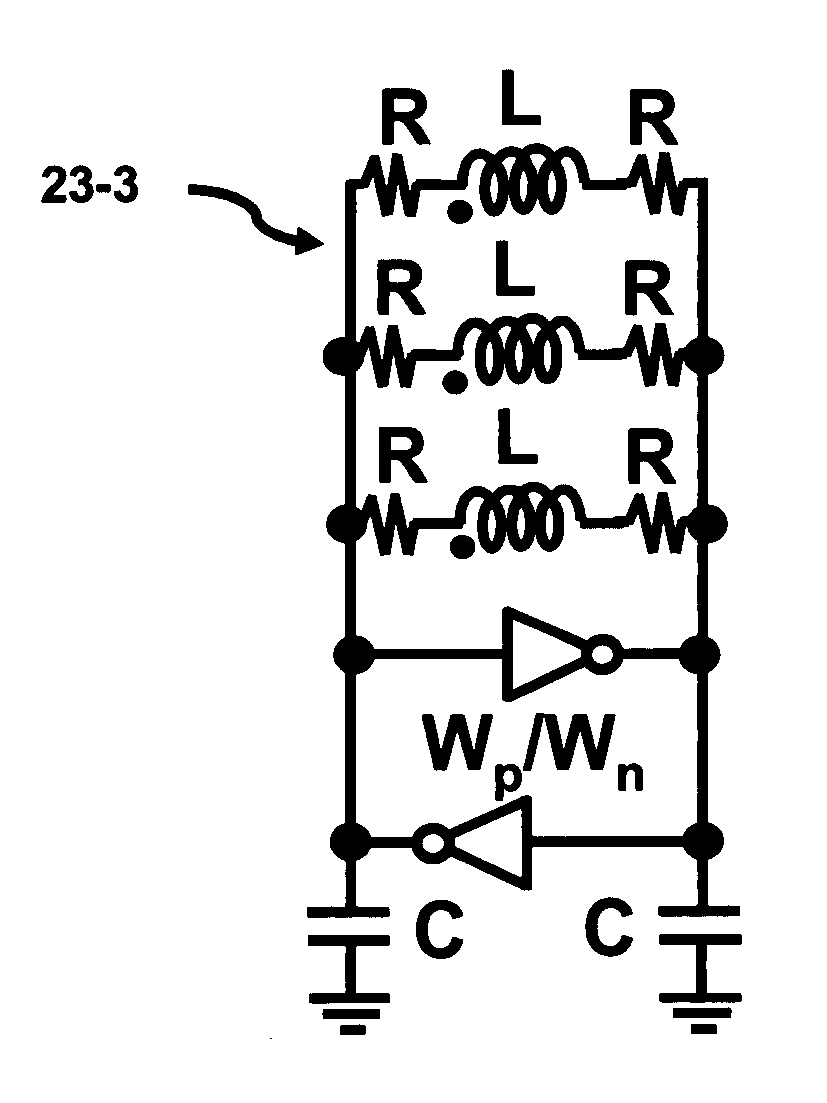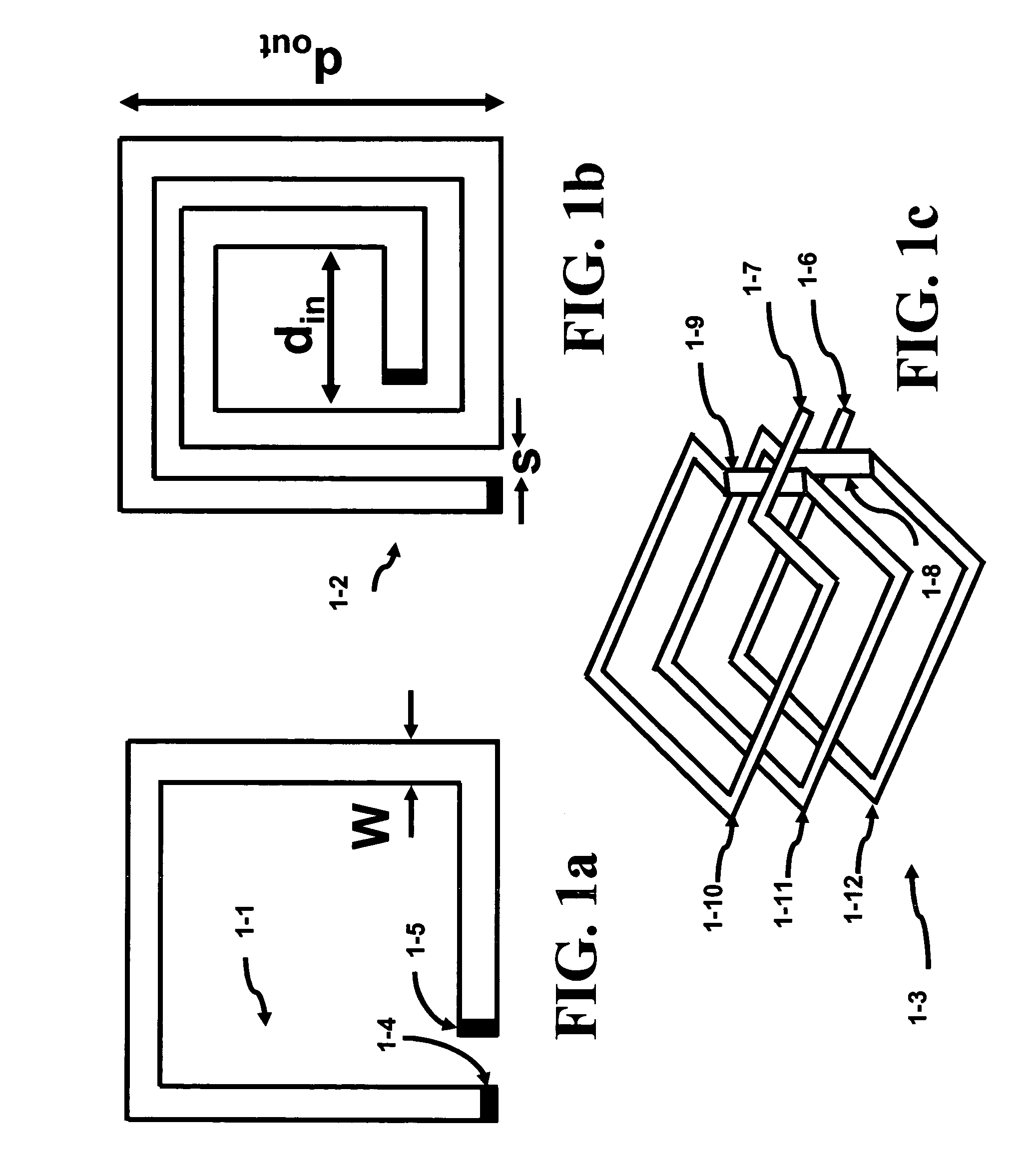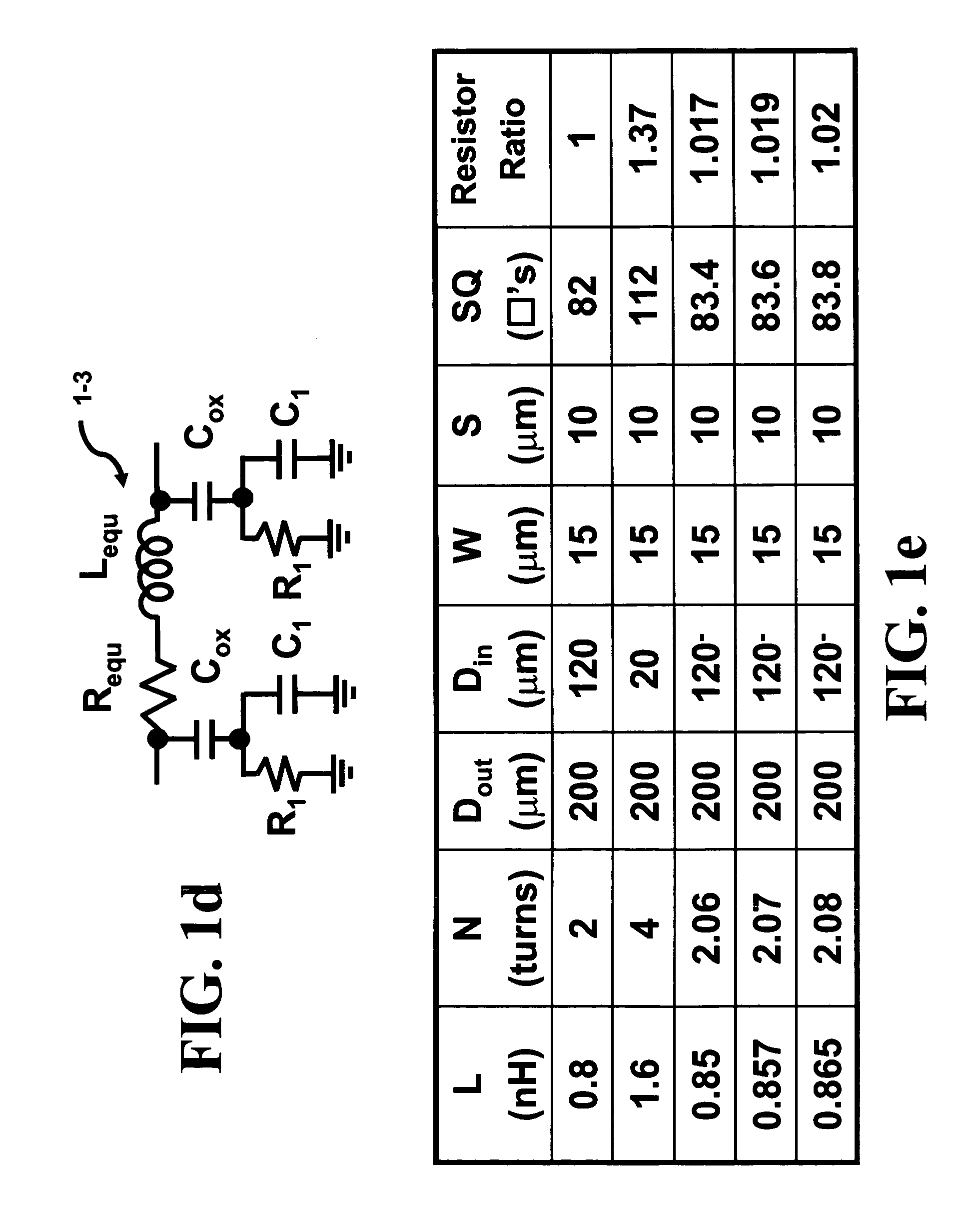Mutual inductance in transformer based tank circuitry
a transformer and transformer technology, applied in the direction of pulse generator, pulse technique, electrial characteristics varying frequency control, etc., can solve problems such as circuit losses, reduce the value of parasitic resistance, minimize energy loss, and reduce the resistance of the sheet
- Summary
- Abstract
- Description
- Claims
- Application Information
AI Technical Summary
Benefits of technology
Problems solved by technology
Method used
Image
Examples
Embodiment Construction
[0071]The LC (inductor-capacitor) tank circuit has been a fundamental building block in many electrical system designs. This circuit is used in the wireless, digital, and mixed-signal designs. The basic building elements of the LC tank circuit consist of an inductor and capacitor.
[0072]The invention is based on the discovery that a transformer can be used to decrease the effective resistance of an equivalent inductance that is applied to a capacitive load while maintaining a higher inductance value. The coupling coefficient of the transformer can be utilized to increase the effective inductance presented to the capacitor yet significantly reduce the resistance of the equivalent inductance of the transformer. The ability to reduce the resistance will offer an improvement in the Q or quality factor of the inductor.
[0073]In addition, this technique offers a degree of freedom in the design of tank circuits, which did not exist previously. For example, tradeoffs between single and multi-...
PUM
 Login to View More
Login to View More Abstract
Description
Claims
Application Information
 Login to View More
Login to View More - R&D
- Intellectual Property
- Life Sciences
- Materials
- Tech Scout
- Unparalleled Data Quality
- Higher Quality Content
- 60% Fewer Hallucinations
Browse by: Latest US Patents, China's latest patents, Technical Efficacy Thesaurus, Application Domain, Technology Topic, Popular Technical Reports.
© 2025 PatSnap. All rights reserved.Legal|Privacy policy|Modern Slavery Act Transparency Statement|Sitemap|About US| Contact US: help@patsnap.com



